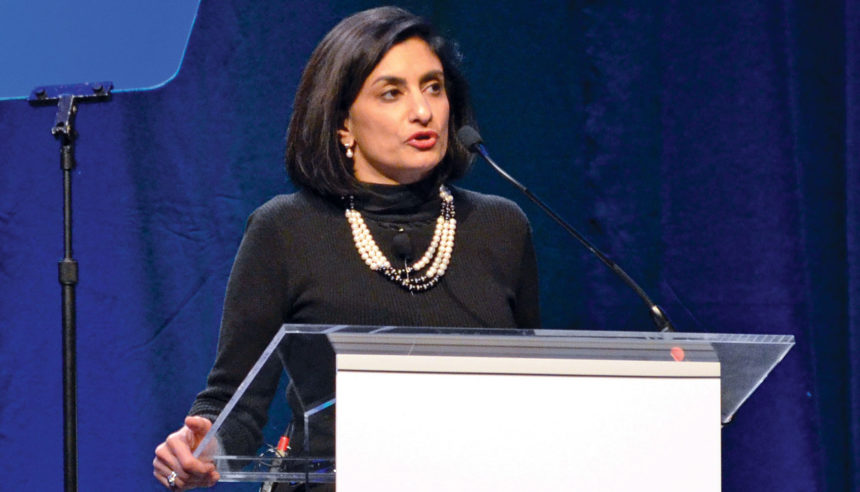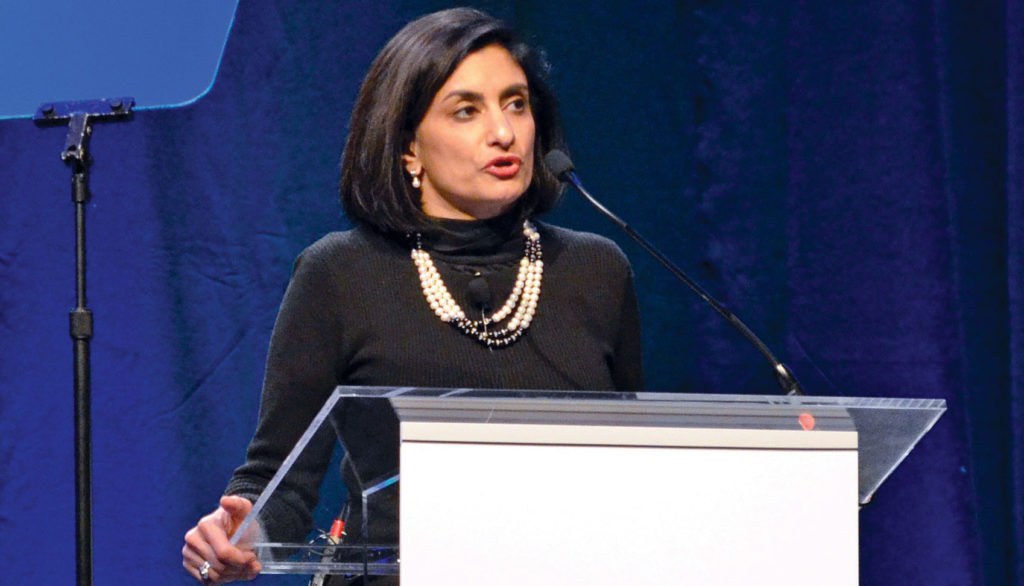

The Centers for Medicare & Medicaid Services announced an “unprecedented” collection of regulatory waivers and new rules Monday to offload surging caseloads that could soon overwhelm many hospitals.
The new provisions should lead to better and more frequent COVID-19 testing of nursing home patients, CMS Administrator Seema Verma said. Changes also will enable even broader use of telehealth than was announced last week.
“Nursing homes are working with their local communities to figure out what’s the best way to get that testing,” Verma said on a media conference call Monday night. “The rules we have today are going to really help with that because we’re paying labs now to go into the nursing home and to collect those specimens. That should enable us to have more widespread testing at the local level, and specifically nursing homes.”
The expanded lab access applies to nursing home residents, hospice patients and anyone else who would have trouble traveling to off-site testing.
“If somebody is already homebound, their provider could facilitate that testing. Even a doctor’s office could facilitate that testing,” Verma said. “That part is restricted to individuals who are homebound or individuals served in a nursing home or some other location where they can’t access testing directly.”
CMS noted Monday’s changes will give healthcare systems more flexibility to provide care over the coming weeks and months, when caseloads are projected to peak.
The agency is enabling “hospitals without walls” to enhance treatment capacity. It also is creating expanded pools of eligible healthcare workers by elevating practice permissions and enabling clinicians to perform crossover tasks. In addition, it is further promoting telehealth in Medicare.
In fact, CMS is now paying for more than 80 additional services supplied via telehealth, according to an agency fact sheet. Initial nursing home and discharge visits are new inclusions. Providers also are now allowed to evaluate beneficiaries who have only audio phones.
The changes are considered temporary and will apply only until the emergency declaration expires.




